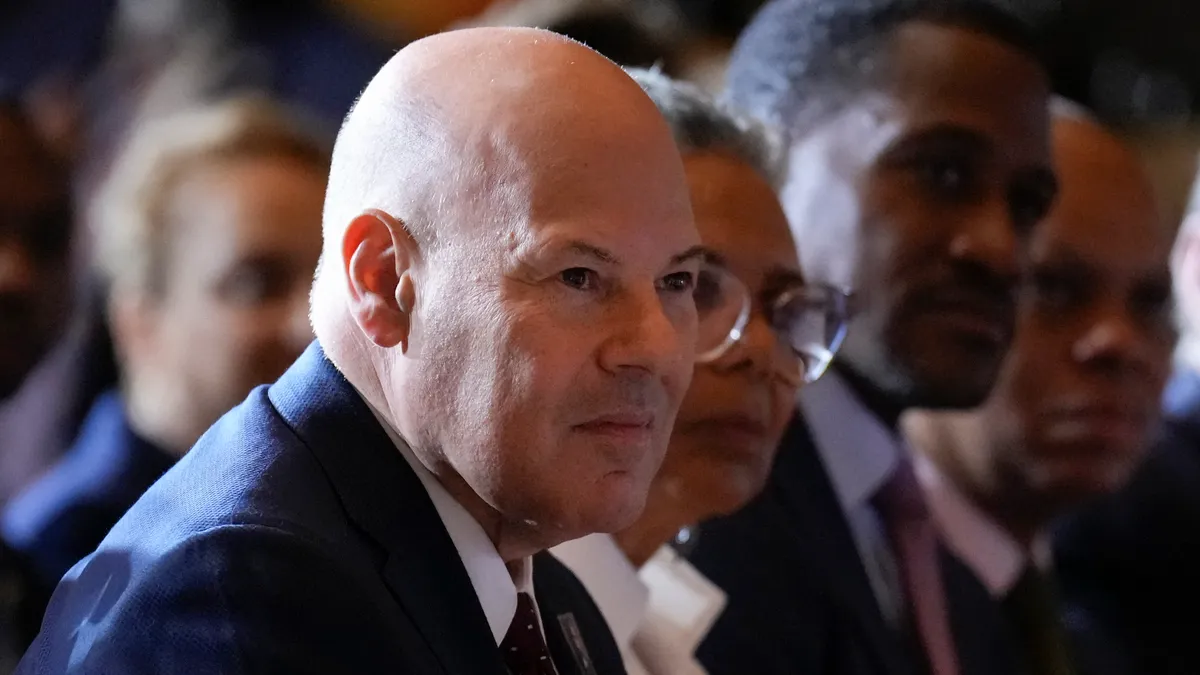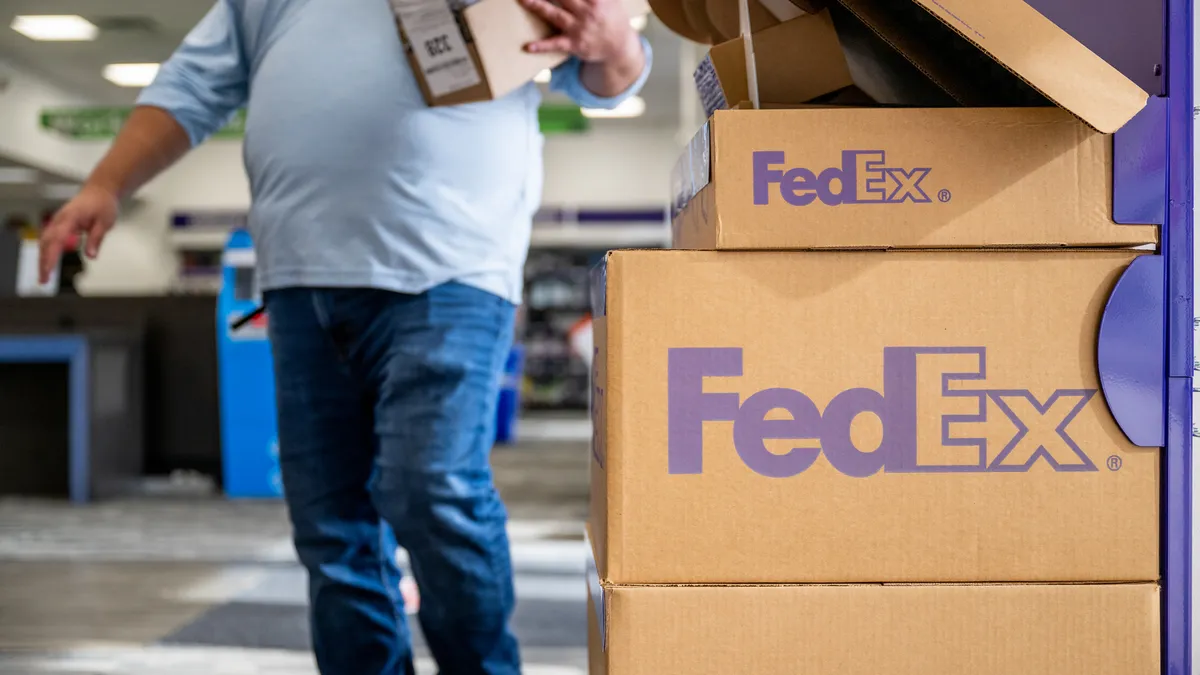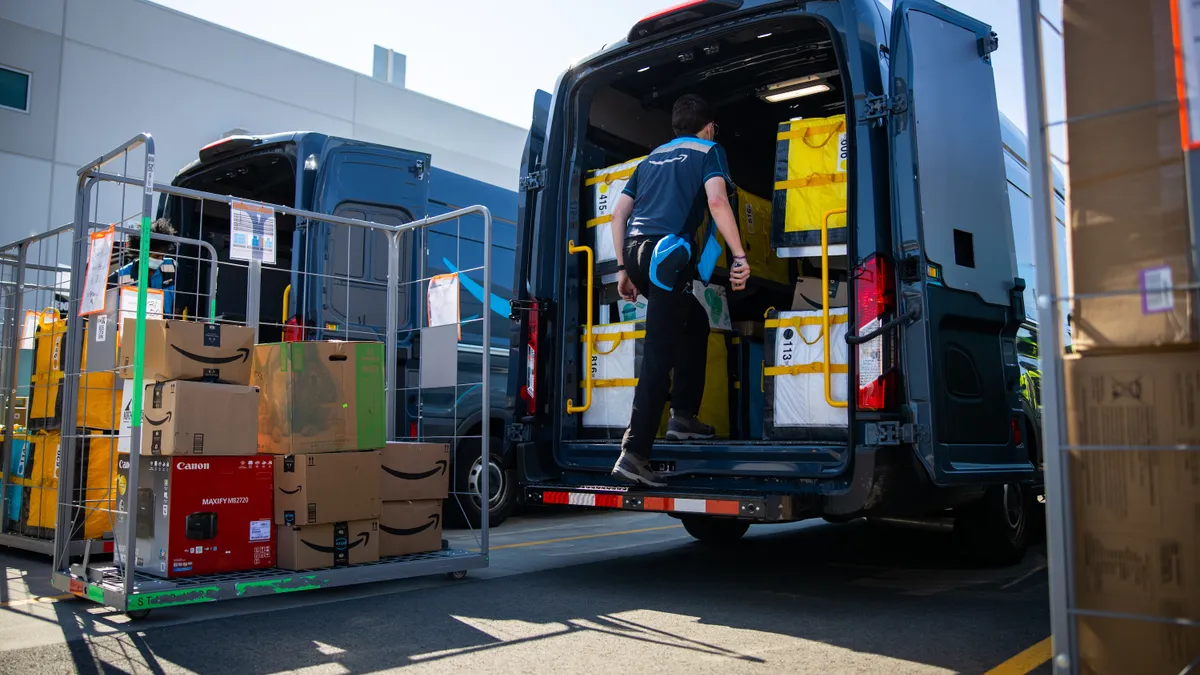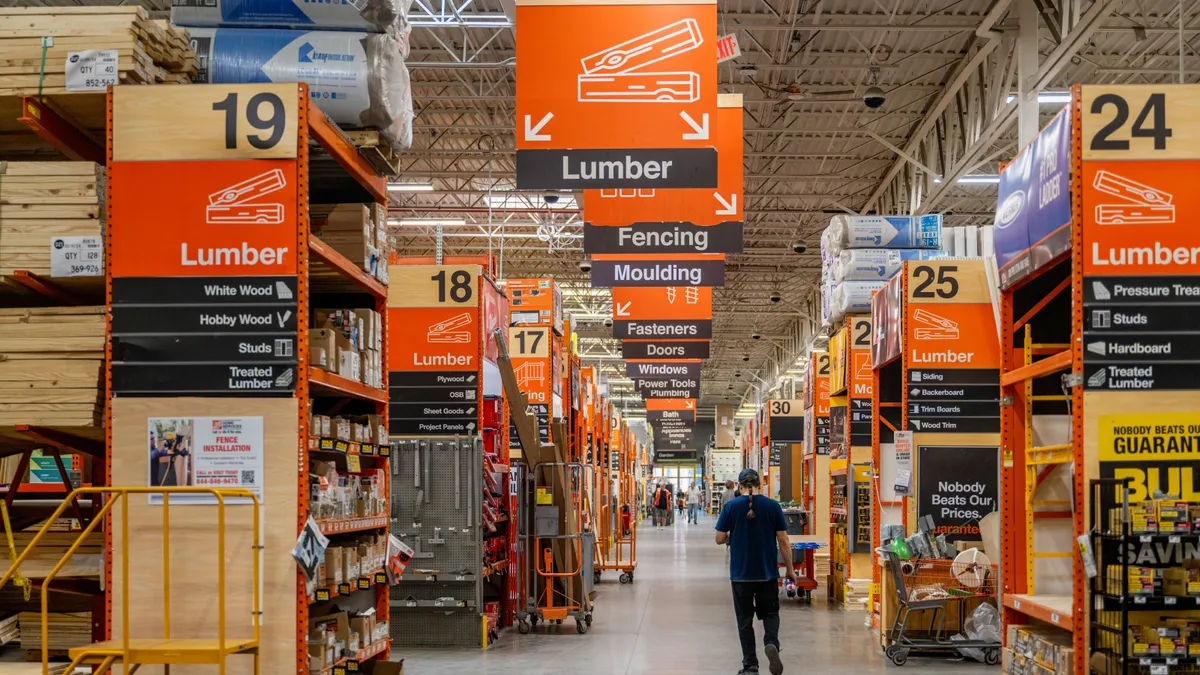The head of the U.S. Postal Service vowed that its on-time performance would bounce back in struggling markets like Atlanta and Richmond, Virginia, that have struggled after adjustments tied to the agency's wide-ranging network overhaul.
In a Senate committee hearing on Tuesday, lawmakers pressed Postmaster General and CEO Louis DeJoy on shipping delays impacting their constituents and associated issues with the agency's rollout of its 10-year "Delivering for America" plan. Sen. Jon Ossoff, D-Ga., warned DeJoy that he has "weeks, not months, to fix this."
"I've got constituents with prescriptions that aren't being delivered," Ossoff said. "I've got constituents who can't pay their rent and their mortgages. I've got businesses who aren't able to ship products or receive supplies."
The Postal Service's reliability has been declining nationwide in fiscal year 2024, said Michael Kubayanda, chairman of the U.S. Postal Regulatory Commission, in his hearing testimony. For example, single-piece First Class letters and postcards are meeting their delivery service standard 81% of the time in the current quarter, well below the 92% target, he said.
It's unclear how package shipping services specifically are being impacted by the agency's network overhaul. Postal Service deliveries for the week of March 30 spent 3.36 average days in transit, up from 2.75 the week of April 1, 2023, according to ShipBob carrier data. FedEx Ground also saw transit times jump between those periods, while UPS' declined.
DeJoy acknowledged that there have been difficulties in keeping operations running smoothly in the thick of the Delivering for America plan, which aims to improve the carrier's finances and delivery service. But he also warned that if the agency's long-term plan isn't implemented, service deterioration will eventually spread to "everywhere around the nation."
"I understand that we are taking certain risks in these efforts," DeJoy told the Senate Committee on Homeland Security and Governmental Affairs in his testimony. "In our situation, however, these are necessary risks, and there is simply no other option."
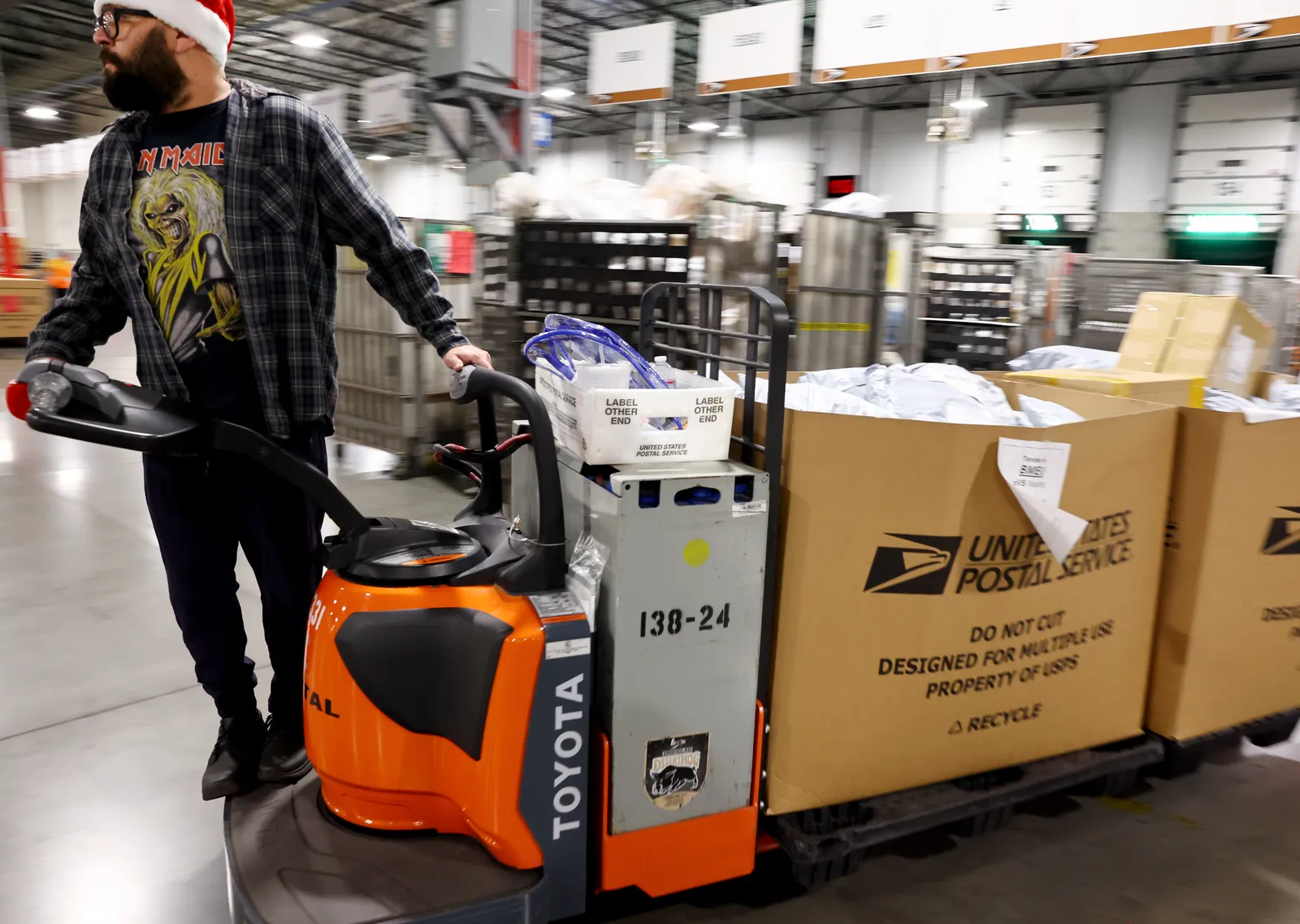
Facility consolidation challenges local service
Delivering for America aims to reduce $1.5 billion in the agency's regional network transportation costs. Steps to do that include moving volume in fewer trips, aggregating mail and packages in fewer facilities and shifting air volume to ground transportation. The plan also calls for slimming down its processing and distribution costs by the same amount through insourcing, implementing more sortation equipment and other tactics.
The rollout of regional processing and distribution centers — which will consolidate operations happening at nearby facilities — are key in helping those cost-savings come to fruition, according to DeJoy. The Postal Service launched its first facility of that type in July 2023 at a Richmond, Virginia, plant.
The implementation had problems, however, including insufficient transportation planning that led to a 700% increase in extra trips, Postal Service Inspector General Tammy Hull told the committee. Operations on the ground also didn't always mirror the agency's new plan.
"This was partly due to inadequate coordination with local management and ongoing changes after the launch," Hull said. "Local management said they did not fully understand the new mail flow within the facility and were not solicited for input."
The Postal Service made another network change in the area three months following the facility’s opening, when it implemented a program in which some post offices held mail overnight to reduce transportation trips and associated costs.
"Following implementation, First-Class Mail on-time service performance in the Richmond region dropped about 21 percentage points to 65 percent," Hull said, noting that the vast majority of impacted ZIP codes were in rural areas.
“I fully commit to you that we will improve.”

Louis DeJoy
Postmaster General and CEO
Atlanta is another market that has been impacted by the launch of a regional processing and distribution center. After its facility opened on Feb. 24, local delivery service faltered, according to Kubayanda. Individual letters and cards mailed from one location in metro Atlanta to another location in the area met its service standard — “a generous two-day window” — 16% of the time in March, Kubayanda said.
The Postal Service's shift to a more centralized network of processing plants means it takes longer for packages and mail to reach their first scan in the shipping process, sometimes traveling to a different state, Kubayanda said. That complicates efforts to quickly deliver volume locally.
"For example, under a pending [Delivering for America] change, mail sent from one town in Northern Nevada to another nearby town would go to California for processing, before returning to Nevada," Kubayanda said.
DeJoy agreed that volume destined for an address outside the local area "may receive better service and be more cost effectively distributed," but he added that most mail is going to a destination away from its original city or county anyway.
"So, making its first processing stop further away serves to hasten its travel, not slow it," DeJoy said. "For the small percentage of mail that is local-to-local, it will continue to meet the two-day service standard."
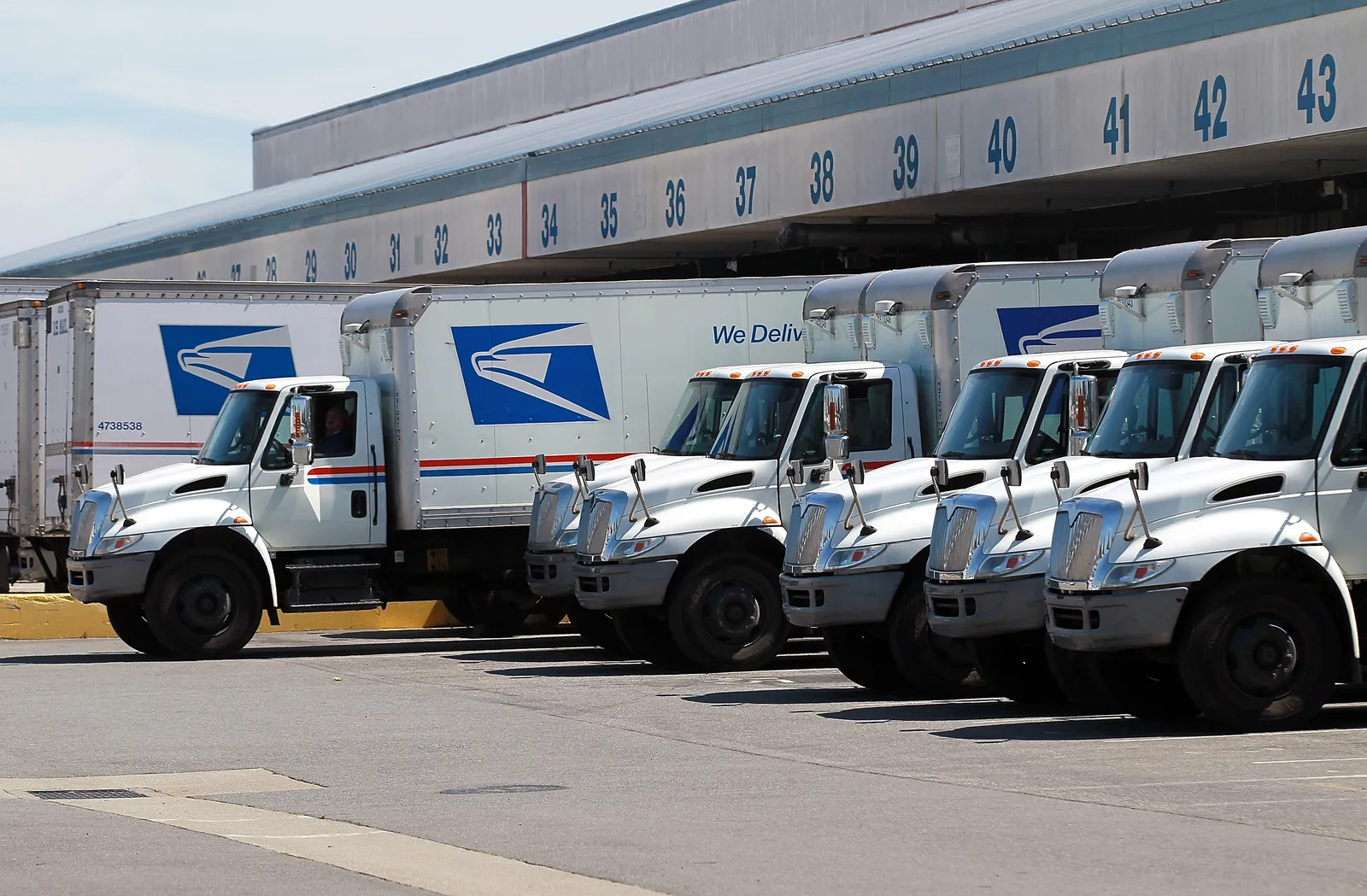
Postal Service makes tweaks in face of service challenges
The Postal Service remains under the congressional microscope amid these service woes. Sen. Gary Peters, D-Mich., called for the agency to pause its operational changes until it's clear that it won't harm delivery reliability.
"Before moving forward, the Postal Service must study the locations that have been altered so far, investigate the root causes of disruptions, restore normal service, and understand the long-term implications of this plan," he said.
DeJoy blamed execution failures, employee attendance issues and gaps in transportation scheduling for delivery woes seen in Atlanta and Richmond, adding that their operations will "be stabilized coming into the summer."
The Postal Service has also made several tweaks to mitigate the risk of future service failures, DeJoy said. These include forming new teams to support major network transformation initiatives, establishing a support organization that will troubleshoot and address network issues and expanding its freight management capabilities with new technologies and suppliers.
"I recognize that there have been unintended service impacts surrounding the roll-out of some of our initiatives and that there is room for improvement," DeJoy said. "I fully commit to you that we will improve."



